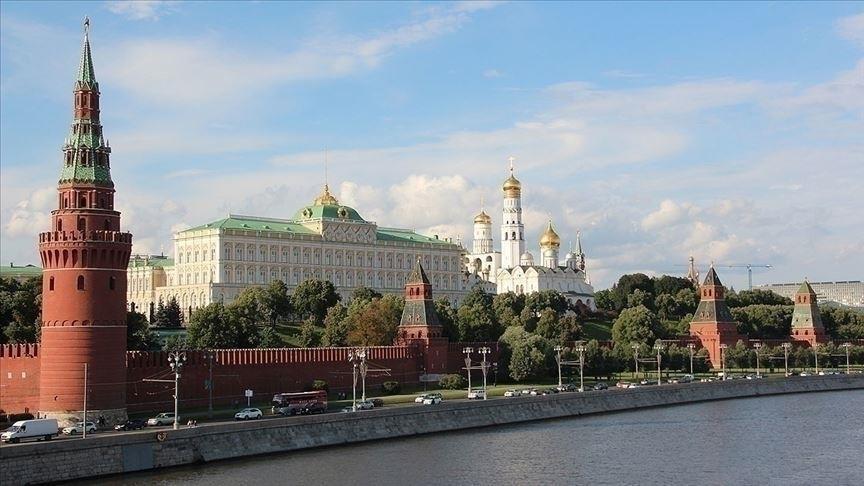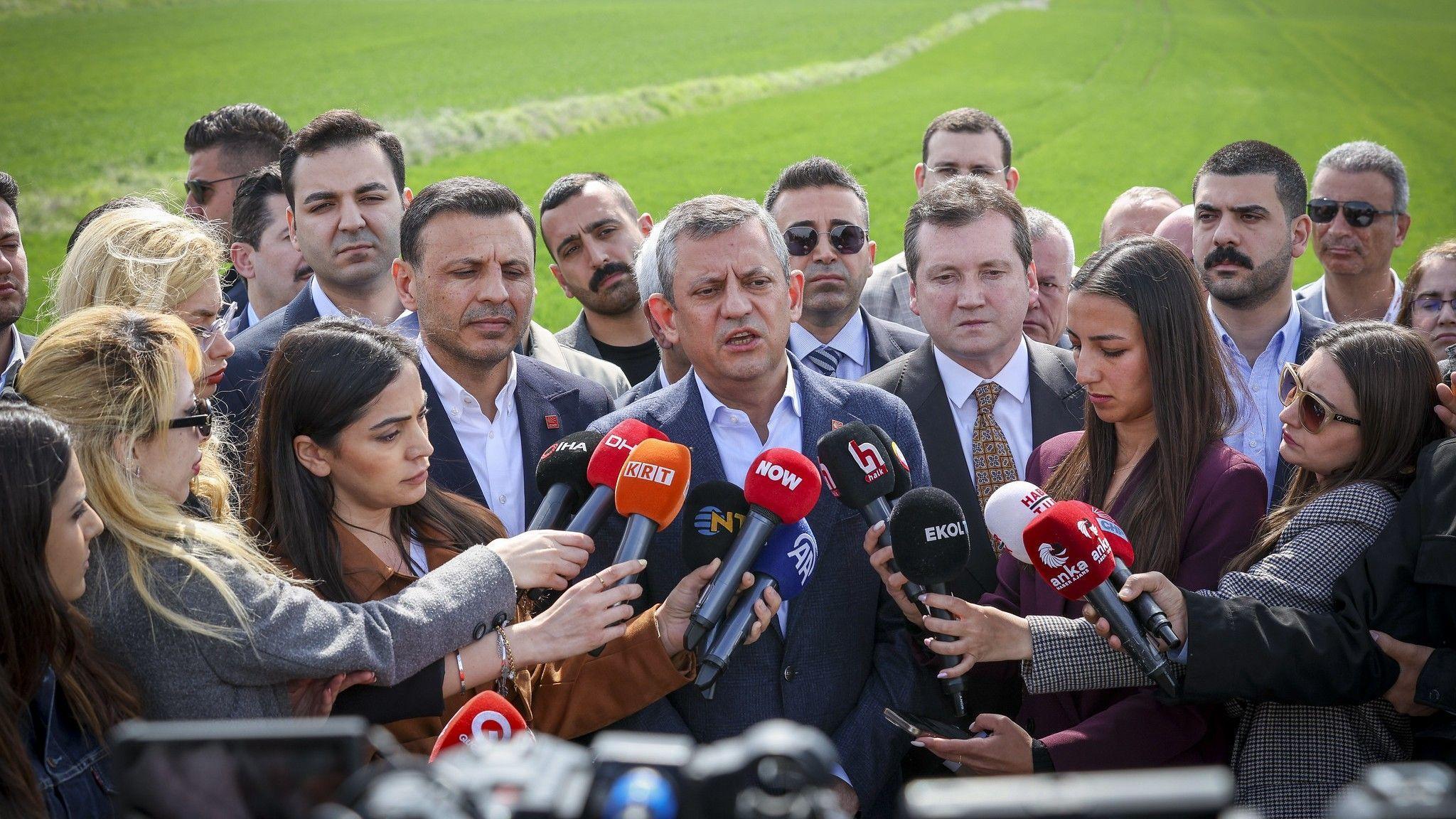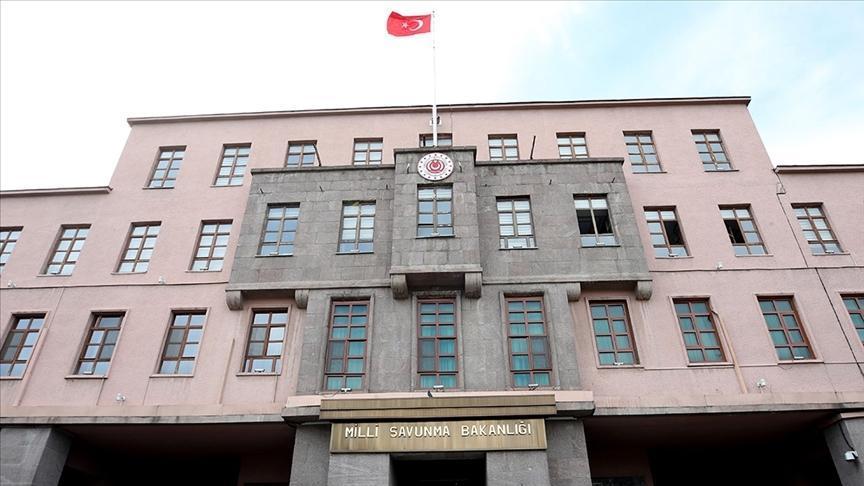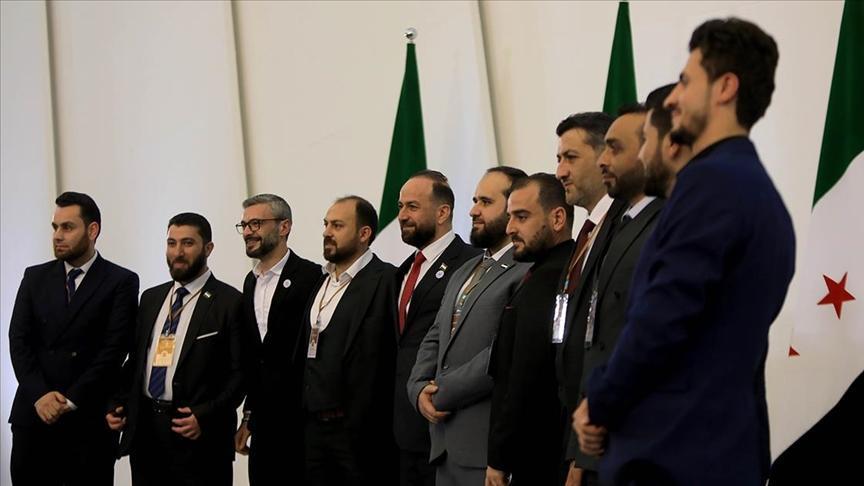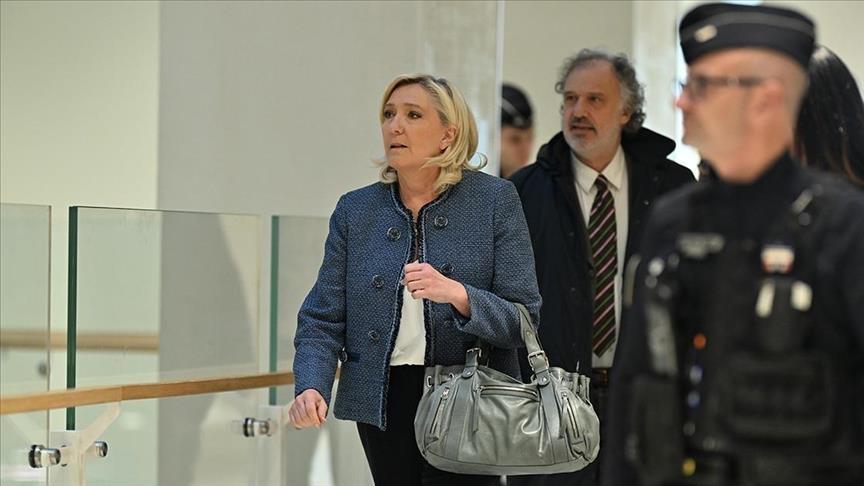Sunni politician’s arrest mounts Iraqi tensions
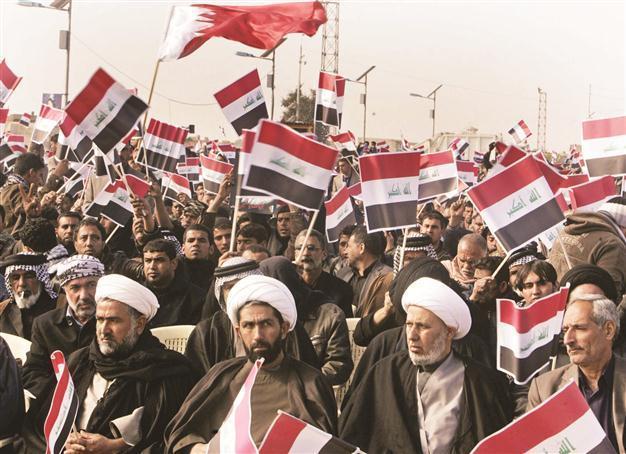
About 1,000 supporters of Shiite cleric Moqtada al-Sadr wave their national colours, along with a Bahraini flag (C-L) during a parade in the holy city of Najaf yesterday taking credit for last month’s US pullout.
Iraqi authorities said yesterday they had arrested a politician belonging to the party of Vice President Tariq al-Hashemi, who is at the center of a row after he was charged with running death squads.The warrant against al-Hashemi, who denies the accusations, comes shortly after U.S. forces completed their withdrawal from Iraq and has pitted the Shiite-led government against the main Sunni-backed bloc, stoking sectarian tensions. Riyadh al-Adhadh, deputy chief of Baghdad provincial council, was arrested on his way to work Jan. 18 in connection with funding insurgent groups, officials said.
“An insurgent group confessed he is funding them and giving them orders,” Agence France-Presse quoted a Baghdad security official as saying. Adhadh is a member of the Iraqi Islamic Party (IIP), a Sunni group belonging to the broader Iraqiya coalition of which al-Hashemi is a part. Al-Hashemi is a former leader of the IIP but has since split from the party.
The IIP confirmed the arrest but condemned it as “an unprecedented escalation,” calling for Adhadh to be freed. Iraqiya has largely boycotted Parliament and Cabinet in response to what it claims are Prime Minister Nouri al-Maliki’s centralization of power and has called on the premier to respect a year-old power-sharing deal or quit.
Arrest warrant for 120 Mujahedeen members
Al-Hashemi has been holed up in the semi-autonomous northern Iraq for the duration of the crisis, and Kurdish officials have so far declined to hand him over to Baghdad. On Jan. 17, Iraq’s Cabinet clamped down on Iraqiya’s boycotting ministers by decreeing they could not run their ministries as long as they stayed away from the meetings.
Meanwhile, arrest warrants have been issued for 120 members of the Iranian dissident group the People’s Mujahedeen Organization of Iran (PMOI), al-Maliki announced in a televised interview late Jan. 17, Iranian Mehr news agency reported. Al-Maliki described the PMOI as a “terrorist” group and said it has been committing terrorist acts in Iraq and Iran for many years. He also reiterated the Iraqi government’s decision to expel members of the group and bring an end to the issue. The constitution will not allow the terrorist group to use Iraqi soil as a safe haven for its maneuvers against Iran, the prime minister said.
Al-Maliki went on to say Iraq wants to maintain relations with its neighboring countries and put an end to the crises Saddam Hussein created for interactions between countries, including Iran and Turkey. The leader of the Iranian dissident group in Iraq said Dec. 28, 2011, that 400 members were ready to move from their camp, Camp Ashraf, outside Baghdad, to a new location as a goodwill gesture aimed at resolving a stand-off with the Iraqi government.
‘Turkey not interfering Iraq’
ANKARA - Hürriyet Daily News
Turkish Foreign Minister Ahmet Davutoğlu urged Iraqi authorities not to exclude any political party from the system, reiterating that Turkey was treating all Iraq’s political parties equally. “Turkey’s foreign policy doesn’t include interference in the internal affairs of any country. We have always tried to positively contribute to Iraq. Mr. [Nouri] al-Maliki is the closest witness of this,” Davutoğlu said at a press conference with visiting Iranian counterpart Ali Akbar Salehi yesterday.
The statement came amid ongoing tension between Turkey and Iraq following al-Maliki’s legal action against the Vice President Tariq al-Hashimi. The tension caused the Turkish Embassy in Baghdad to be attacked by rockets, with no major damage occurring. Iraqi Foreign Minister Hoshyar Zebari and Finance Minister Rafie al-Esawi called Davutoğlu on Jan. 19 to express regret over the rocket attack on the Turkish Embassy. He pledged the incident would be investigated and measures would be taken. Describing the current political state in Iraq was full of intense distrustfulness among different political parties, Davutoğlu said Turkey’s single aim was to change this picture for the better. “Turkey’s position is clear. We are at equal distance to all brothers. But we cannot only watch what’s going on around us. ” he said.


